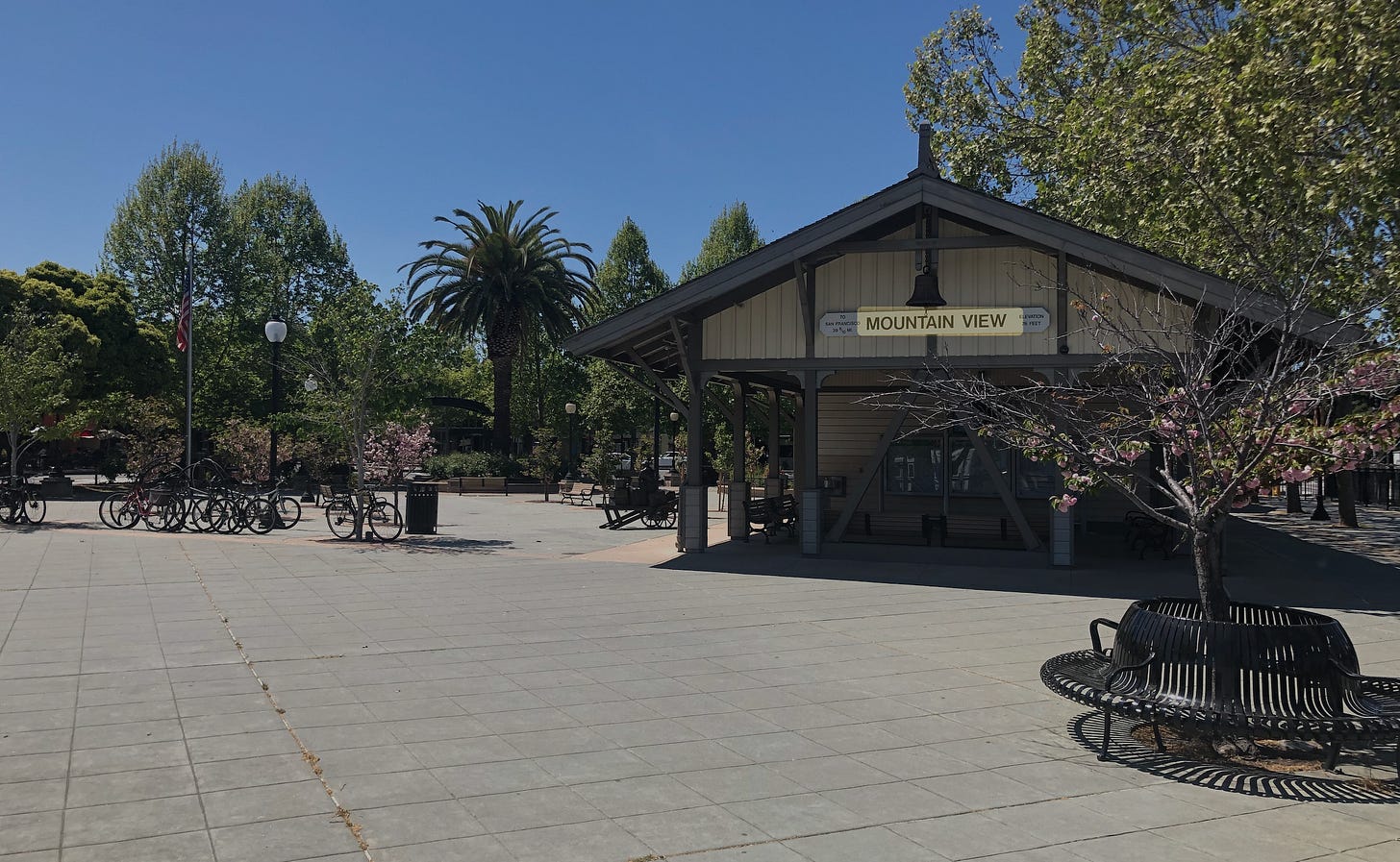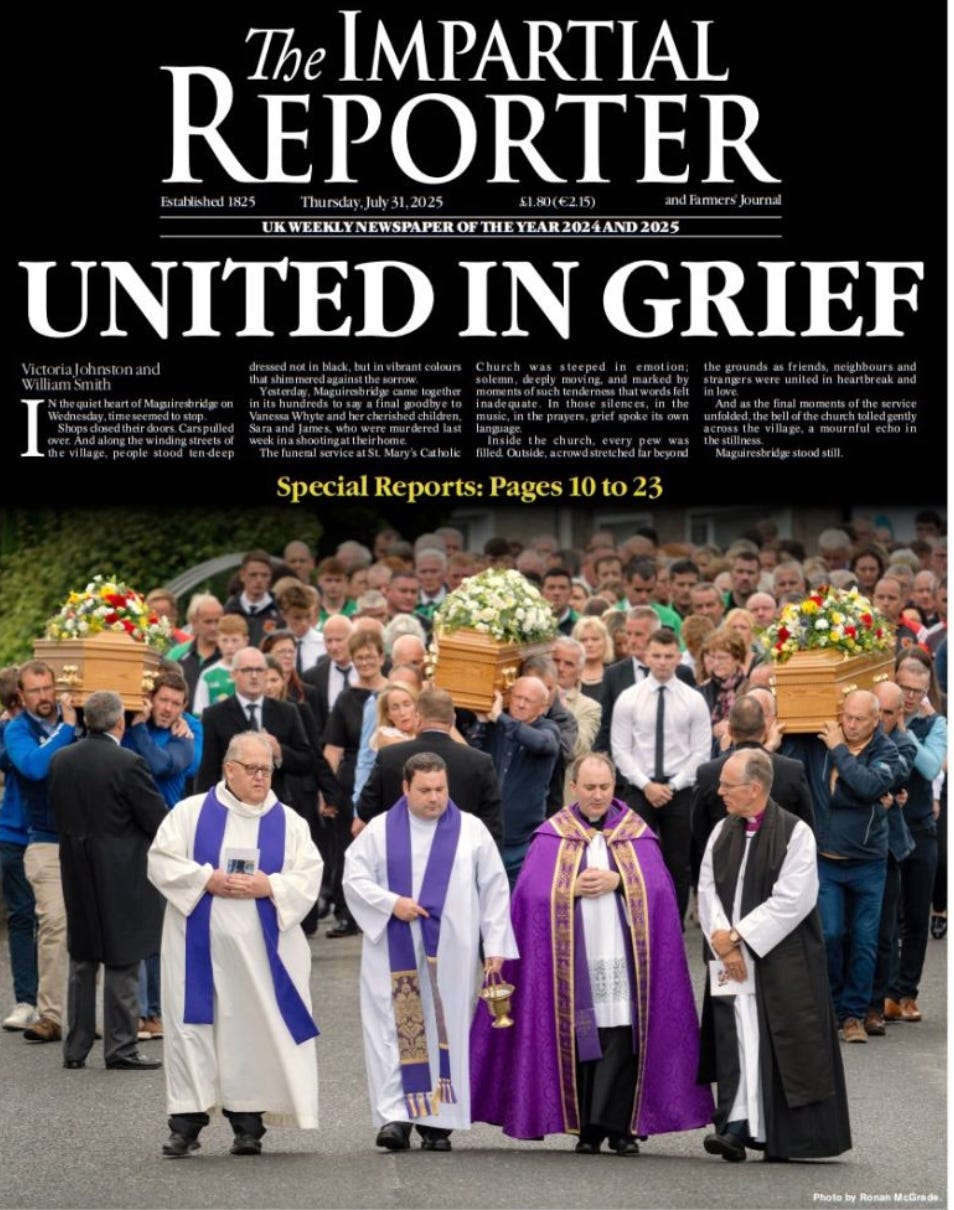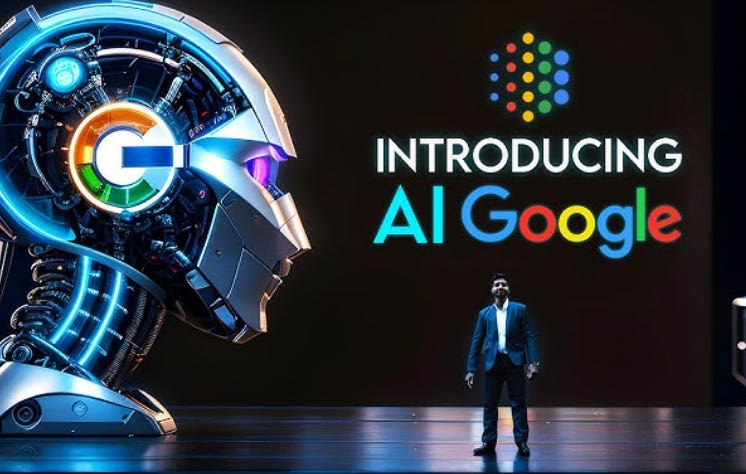Google and local news: What next for publishers as AI Mode lands in the UK?
Plus: Awards you need to enter now, Reach's new hires and the front page which went viral on Reddit
Hello,
Welcome to the weekly round up from Behind Local News. Despite it being August, there’s a lot going on, from the front page in Scotland which went viral on Reddit through to a growing backlash against the chancellor’s plans to leave communities in the dark by ditching the need for public notices around licensing changes. We’ve also got news of new appointments at Reach, a rugby league podcast doing great things and the launch of a new guide to help newsrooms gain charitable status.
Our main read this week comes from Ian Carter, looking at the changing relationship between publishers and Google as the search giant leans into AI in a very big way.
Thanks for reading,
Behind Local News
What we’re reading:
The editor of the Manchester Evening News has warned of the chilling effect a hunt by the Independent Office for Police Conduct to find who leaked video of a fight involving officers at Manchester Airport will have on society. Sarah Lester has warned the actions of the IOPC will effectively criminalise people seeking to bring the truth to light.
The closing date for entries at the Media Freedom Awards, run by the Society of Editors, is next Monday, August 11. Categories for local and regional journalism include investigation of the year, campaign of the year, environmental journalism, journalist of the year, young journalist of the year and regional news media of the year. More details on how to enter here.
The annual Asian Media Awards will be held in Manchester in October. Nominations are now being sought and close on August 22.
The Impartial Reporter’s front page captured a community in mourning following the death of a mum and her two children. Editor Rodney Edwards said: “Neighbours lined the streets. Friends held hands. Clergy of all faiths stood side by side. In a Catholic church, a Protestant bishop lit candles. Soccer and GAA teams gathered. Fermanagh stood united for Vanessa Whyte and her children James and Sara. Love crossed every boundary.” You can read the Reporter’s full coverage here
Also in local news this week:
Chancellor accused of putting breweries ahead of transparency in planned purge of public notices
The chancellor has been accused of prioritising supermarkets, fast food giants and breweries over local people after plans to scrap the need to advertise licensing public notices in newspapers.
“Extremely simple front page” goes viral
A newspaper’s front page went global when it took a firm line about Donald Trump’s recent visit to Scotland.
Reach names new editor in chief for Scottish titles
Former Scotsman editor Neil McIntosh has been appointed editor-in-chief for Reach’s titles in Scotland.
Rugby league website launches new podcast with familiar face at helm
A regional website specialising in rugby league coverage has launched a new podcast — with a very familiar face.
New guide launched to help newsrooms become charities
An organisation promoting the creation of charities to help sustain local journalism has launched a guide to help organisation to just do that.
Rugby league website launches new podcast with familiar face at helm
A regional website specialising in rugby league coverage has launched a new podcast — with a very familiar face.
MyLondon vows to fight for residents trapped in city’s broken lift tower blocks
Journalists who spent a year chronicling the failures of London’s social housing and private rental sector have revealed widespread lift failures at in tower blocks in the capital.
New head of transformation arrives at Reach
Publisher Reach, home to titles including the Manchester Evening News and WalesOnline, has announced that Gary Rogers will be joining the Editorial Senior Leadership Team at Reach, in the newly created role of Director of Newsroom Transformation.
Will Google let AI Mode kill its relationship with local news publishers — and the open web too?
As Google unveils its AI Mode, which many fear will lead to a world where Google stops sending audiences to news websites, Ian Carter looks at what could happen next between the search giant and local newsrooms:

Google may long since have abandoned ‘Don’t be evil’ as its company motto, but it still likes to present itself as a friend of the news industry.
While Meta ditched its Facebook community news reporter scheme with unseemly haste and has taken an increasingly aggressive stance towards our industry, Google has stuck with some publisher-friendly initiatives.
It still provides direct payment for content via Google Showcase and runs various schemes to equip editorial teams with the skills needed for the AI age.
Critics would argue that what it puts back into the news industry is the tiniest drop in the ocean compared to what it has taken out.
And this already very uneasy alliance has been further shaken by the rapid growth of Google’s AI Overviews and the resulting increase in ‘zero click’ search results.
Those concerns will only deepen as Google launches its AI mode in the UK as it did last week. It sees traditional search results replaced with a chatbot-like experience, providing custom responses often drawn from publishers’ original content.
Who will bother visiting one of our websites when a friendly Google bot will tell you anything you want to know — and who will fund our journalism if search traffic disappears?
These are concerns long recognised by the Government, with Google facing a probe into how it operates its search activities in the UK and how that impacts competitors and consumers.
Such was the context for a meeting involving regional and national publishers, members of Google’s News Partnership team and Danny Sullivan, the public face of its search activities.
Sullivan is a former journalist who spotted a niche in the market and specialised in writing about search engines for decades before retiring — and then being tempted back into the fray by Google.
There were times during the meeting, held at Google’s St Giles High Street offices in central London, when he may have wished he’d stayed in his garden, with the atmosphere veering from friendly to hostile and then settling somewhere in the middle.
Chatham House rules were in effect for the gathering, which means we can report what was discussed but not precisely who said what.
Google’s stance is simple — visitors like and value AI Overviews, people no longer suffer a frustrating user experience trying to get an answer to a simple question (‘What time is Britain’s Got Talent on tonight?’ ), and this is only the beginning of a revolution in search.
Oh, and if they aren’t providing it people will just use Chat GPT, Perplexity or Grok — and maybe it’s better the devil you know.
Publishers have an equally straightforward view — the increase in zero-click search results means there is even less money than before to create the content. And without the content, Google’s mission to’ organise the world’s information’ becomes a whole lot harder.
So how do we solve a seemingly unsolvable challenge, which many fear presents yet another existential threat to the news industry?
A suggestion from a Google representative that, if publishers have an issue with how their content is being exploited, they can simply remove themselves from all its services — search results included — received a predictably frosty reception.
Search referrals may be in rapid decline, but they remain essential at this point for revenue and relevance.
Is there merit, though, in such a radical measure?
Cloudflare founder Matthew Prince makes a compelling argument that making content more scarce, rather than distributing it across every platform, may be the best outcome for publishers.
Don’t worry chasing search traffic any more, block access to your content, and if readers value what you are creating then they will have to come to you directly.
It’s arguably a logical evolution of the subscription strategy most publishers see as an essential part of their future.
Such a move, though, would mean the industry operating as one — something we have never traditionally done well. But a future where we simply don’t rely on Google at all? It’s food for thought.
The only realistic alternative is licensing arrangements which would see publishers compensated via a revenue share model if their content is used in Google’s AI services.
Google’s response? Too complicated, unmanageable and of limited benefit since news — according to their own, disputed research — is of little commercial value and makes up 2% of search queries.
Furthermore, who would determine who is liable for payment? Traditional news publishers are far from the only content creators in town, they argue
In reality though, the concept of the open web featuring trusted news content is essential for their business model and a compromise will have to be found.
And that middle ground undoubtedly has to involve money flowing back to the publishers creating the content in the first place.
Yes it’s complicated, but no more so than determining who is eligible to apply to bid to run Local Democracy Reporter contracts on behalf of the BBC.
And Google will surely know that is an inevitable outcome of the Competitions and Markets Authority probe into its current activities.
Its meeting may not have come up with firm solutions but by its conclusion Google appeared to at least be in listening mode.
Discussions will no doubt continue alongside the CMA investigation, which we hope will now be conducted with somewhat more urgency than has been the case to date.
The landscape is shifting at a rapid pace and nobody can afford to be left behind.
Ian Carter is chief operating officer at Iliffe Media, which runs a a wide-range of local news titles including KentOnline, the Cambridge Independent and the Stamford Mercury




https://substack.com/@startupmac/note/p-168376742?r=61vdna